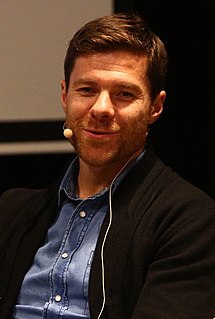A Quote by Leonard Cohen
Related Quotes
Bayern is a big club and a big brand, but on a daily basis, it's a family club. You get to know the physios, the kit man, the chefs. It's also a club that's very close to the supporters. That proximity to the fans makes it special. That was surprising. In Liverpool and Madrid, there's more distance.
Our lives are about development, mutation and the possibility of change; that is almost a definition of what life is: change... If you disable change, if you effectively stop time, if you prevent the possibility of the alteration of an individual's circumstances — and that must include at least the possibility that they alter for the worse — then you don't have life after death; you just have death.
The greatest dread of ordinary man is death, with its rude imposition interrupting fortuitous plans and fondest attachments with an unknown and unwelcome change. The yogi is a conqueror of the grief associated with death. By control of mind and life force and the development of wisdom, he makes friends with the change of consciousness called death-he becomes familiar with the state of inner calmness and aloofness from identification with the mortal body.






































